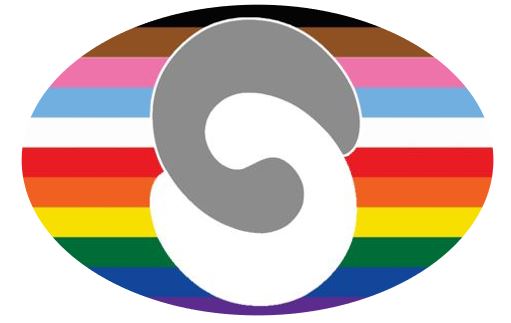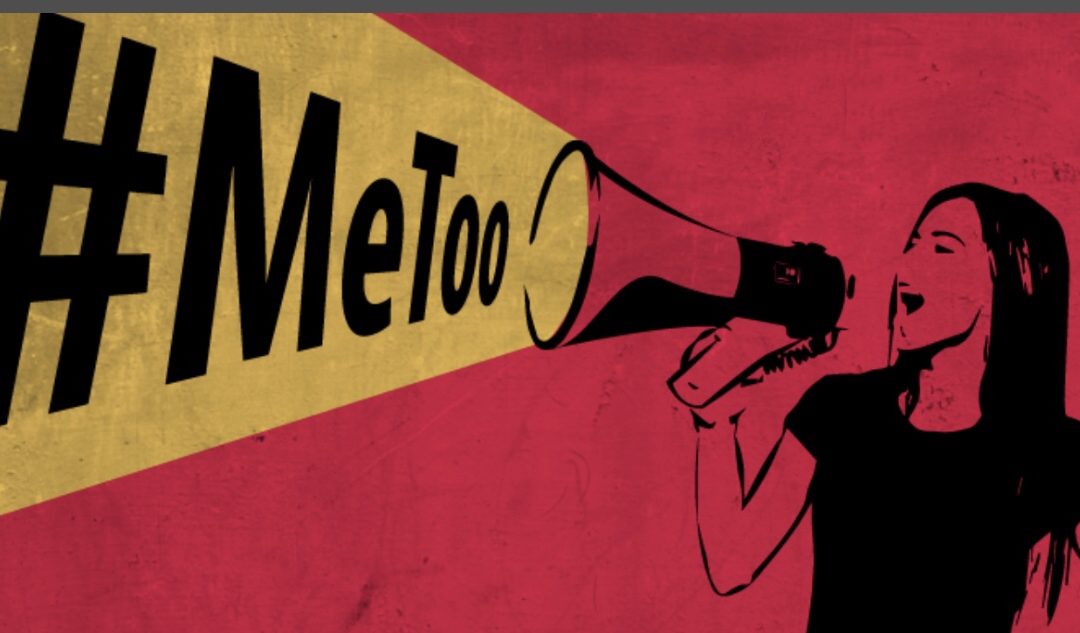Last time I told you about the sex ed talk I gave at a conservative university. One of the students asked me how he can avoid false accusations, and I fumbled. Today, I’ll share how I might handle it next time and who I turned to for help.
Tactics
The student asked a direct question, and one way I could have responded would be with a direct answer. I could have given him a list of tips, a prescription like this:
- Build rapport with a potential sexual partner by initiating a safer sex conversation before you get all up in each other’s business. (We had already explored this in the presentation I just gave.)
- Don’t engage in sexual activity when intoxicated. (We talked about intoxicants in class.)
- Don’t engage in sexual activity if your partner is intoxicated. (Ditto.)
- Use verbal consent techniques throughout your sexual experiences. (We practiced verbal consent in the presentation.)
Even though most of my class was about consent, this student took the time to come up to me after class. Somehow he wasn’t satisfied. What was up?
Facts
Maybe I could have armed him with facts about false reporting. The National Sexual Violence Resource Center (NSVRC) explains in their literature that most sexual assaults aren’t reported. This research-focused nonprofit also describes a concern with the media. By putting so much attention on the very rare cases of false reporting the media creates a frightening perception that false reports are common when they aren’t. A savvy media consumer – when he hears a story about false reporting – will know that the amount of attention being given to it is out of proportion to the reality.
The NSVRC concludes that “misconceptions about false reporting rates…can contribute to why many victims don’t report sexual assaults.” By providing this student the above tips and facts in a calm and professional way, perhaps one less person in the world would worry unnecessarily and one more person could feel safe enough to report an actual crime.
Something tells me that if I rattled off these statistics, that student wouldn’t walk away feeling seen, heard or supported. Something was still missing.
My journey to calm
So there I was at the airport the morning after the presentation. I’d just finished writing my rant to purge my frustration. I gave Dave Booda a call. Let me tell you about Dave. He’s a retired naval officer and friend. We met at a relationship workshop years ago. Dave is also a gifted musician:

Can you tell that Dave is cool? He is. He’s a popular guy who’s able to find and nurture satisfying connections with women without the scary results feared by that student. Perhaps most importantly, Dave is a thought leader about culture, gender dynamics and relationships. Dave could provide me needed perspective on this student’s question and maybe help me identify my blind spots as a teacher. While talking with Dave I quickly learned that I had a semantics problem.
The words got in the way
When I called the police to report the rape that happened to me five years ago, the police officer on the other line thought we got disconnected because I was silent on the other line. “Hello?” he said. “I’m crying,” I explained. “Oh, take your time.” I continued trying to speak the sentences that needed to be said so I could get this call over with. Reporting a consent violation is emotionally painful. That’s why most people don’t. The very idea that my experience might be questioned as false – this is what makes me go nuclear. To put it simply: The language – the words – “false allegation” is emotional to some of us who have dragged ourselves through the experience of reporting.
The question behind the question
Dave guessed that the student’s concern wasn’t really “How do I stay out of the criminal justice system.” Instead he imagined that this guy was seeking a “Perfection Model” for consent. This fellow wants the holy grail – an equation that’s reliable and repeatable so that he can go about his social life without fucking things up.
My defenses lowered a bit
I regularly work with men on the neurodiversity spectrum who are grasping for the social rules that are known to others but invisible to them. I have great compassion for that struggle. These men are trying to get their needs met in a world where they have to learn through repetition and memorization what others know intuitively. Using Dave’s assessment, I had to make a mental translation that was very odd to me:
False Accusation = Getting Unpleasantly Called Out For Something Not Yet Visible to Me
If that’s what this guy really meant – that he just wants to get consent right, sure, I can hop over the semantics of the question and proceed. (There’s still a little burning in the pit of my stomach, but I can do this.)
Perfection versus Vulnerability
A Perfection Model offers a promise that relationships can be mastered intellectually. It might be a manual that includes the good tips I listed above with hundreds of exceptions and caveats. The Perfection Model for consent could be memorized and would diminish risk, embarrassment and error. Fortunately or not, the Perfection Model doesn’t exist. In its place, Dave and I might offer a more uncomfortable and effective approach – the Vulnerability Model. Says Dave:
“What we’re in is a laboratory where we are learning together. An accusation is a gift. The worse scenario is an accusation you don’t get to hear. When she says something, you have another shot. Shut up and listen. You’ll be on your way to something better.”
So one important aspect of the Vulnerability Model is humility:
- Be teachable.
- Accept you may make mistakes.
- Ask questions and then listen to the answers.
The second important element of the Vulnerability Model of Consent would be attunement. In my opinion, attunement is a delicious way to live and love. Not only does it help one be more confident in sexual situations, it can help one be a better friend and overall human
Because this topic deserves more time and attention, I’ll dive into it next time. I’ll be back in two weeks to share ideas on how we can all get more attuned.


Why don’t you ask him why he is afraid of false accusations? I assume that the young man is generally afraid that he might be the target of such accusations. Find out what he’s feeling from his point of view. As an educator you’re there to serve his needs, just like you are there to serve the needs of those who are victimized. You could ask him what his experiences have been so far. Has he engaged in sexual activity? Is he comfortable talking with his partners about it? Find out where he is coming from. Find out what led him to ask the question in the first place.
Yes! If I could go back in time, this would be the best way to proceed. With context. What is his point of view? Thank you for reading and commenting!
You bring up some extent tips which I think would be great in response to the question, but not a whole response. Kind of as Eros mentions, you’ve been thinking about building a response primarily in the context of your own experiences. Dave offered a good second perspective, but are you resisting examination from the perspective of one being accused by a wrongful accusation? It does not invalidate your own terrible experience, to consider the entirely separate experience of one’s life traumatically impacted by a wrongful accusation & social condemnation. And similarly as not all real sexual assaults get reported to law enforcement authorities, not all false allegations are to legal authorities either – some just make their way around social circles and live on social media. You made a good point, it’s very vulnerable & emotionally difficult to tell someone about your real traumatic assault experience, I imagine you felt defenseless. Do you think the victim of a social assault might also feel traumatized, defenseless?
Thank you for being so kind in presenting this point of view. Yes, I can definitely have compassion for anyone feeling defenseless. Yes.
As a man who is on the autism spectrum, getting called out for something not yet visible to me is a familiar experience but one I have learned to be grateful for. The vulnerability model has been my safest option and does indeed keep me safe, and often alone. Revelations of who I am or what I want tend to come off as too much or too sudden. I’ve accumulated the false impression that all women want is to be left alone. So when I approach, even just for a casual conversation, it is in a background of guilt and that she can feel and is put-off by. Any desire I have intensifies this effect and I have vilified male desire over the years. This feedback loop has been difficult to handle in a self-compassionate way. What I see is a population of men and women both afraid of each other and both lonely.
As much as I may want a solid formula the only formula I have is to be present, a good start but I’d love to hear some advice.
Thank you for sharing what sounds like an achingly felt life experience. Knowing you as I do I know that you have you have gone through great lengths to develop in these areas. I can only hope you have experienced breakthroughs and treasured moments of connection that would not have occurred without your diligent efforts to learn and grow. I hope my blog next month about attunement provides something useful. Oh boy, I better make it good!
I’m part of a liberal sub-culture that tends to react to accusations by women against men with hysteria. I was accused by a former girlfriend of threatening, manipulating and gaslighting her. None of that was true. In fact, she was mentally ill and was very abusive towards me. Unfortunately, for me she had many friends in the town I had just moved to and presented herself to them with a terrified account of my treatment of her. I believe she really thought I had abused her and that derangement was sufficient for her friends ,who proceeded to gossip about it all over town. It was a miserable experience. I was shunned by a lot of people.
On top of all that, one time I was dancing with her in a sexual manner at a partner dance event and people there accused me of groping her. She didn’t think of herself as being groped. It was consensual and she’s a very sexual person. But the people at the dance started spreading rumors that I groped women on the dance floor. Again, it was a really horrible experience and I was shunned by many in that group.
That college student may have seen similar occurrences and might have been afraid that he would be could be the victim of an accusation, whether sexual assault or some type of emotional abuse he was innocent of.
Eros – thank you so much for sharing your experiences with me and this community. It really helps.
As a female I feel strange entering in this conversation that is mainly about male fears. Being honest, I felt myself triggered by this conversation. It is hard to be vulnerable.
I volunteered for two years as a sexual assault counselor, years ago in a small town. This experience haunted me. I saw a lot. As hard as it is for women to come forward, it is harder for men to speak of their assault. I was trained that we might have male survivors of assault perpetrated by men and women. I never saw one male survivor come to the ER during my shifts. (I would often volunteer 36 hours of night shifts a week.) That is quite telling.
Taking psychology at University opened me to the idea that women can hurt men and that women are not the only people who are assaulted. Family and friends are likely to abuse female and male children. When I was dating I learned that four of the seven men I had relationships with were molested and/or abused. Meanwhile, almost every female friend I have has been abused in some way. Our culture has a real problem with boundaries. It is important that we support all survivors and use boundaries.
Our society treats both women and men poorly. The separation of the sexes helps authority figures stir up society and keep us powerless while we fight with each other. As women are chained so are the men. Men will be seen more as human beings than monsters as women gain equal social standing. Relearning boundaries as a society could really help.
There are manipulative and awful people on both sides. Most people just want to live in peace. Love for my husband and doing my best to understand him has shown me some of the stresses men live with to be seen as men in our society. As we grow with the #metoo movement I think we will see more men talking about their experiences. There is very little support for men to be vulnerable. Violence seems to be promoted as a masculine coping mechanism in the messages that I see in society. (I am very aware of social media while watching my young son and daughter grow up.)
I really love the idea of genuine vulnerability that allows people to converse in a trusting way. I wish this option were more available to me in my dating years. (It is such an attractive way of being that requires a lot of strength.)
I look back on my dating experience with more mature eyes and I see so much defensiveness and insecurity in the men I dated. Society expects them to perform primary actions of initializing relationships. This is a set up for constant rejection and ridicule.
Meanwhile, I was taught, as a female, that men are predators that want only one thing and will use force to get it. I was taught to protect myself and show as little vulnerability as possible or I could get hurt. I was defensive and offensive, self-protective.
Men and women are taught that they are adversaries. This part of dating is ugly and full of fear. We need women to see the harm to men in our society and to be empathetic as well as men showing the same to women. Women and Men need to come together to reject predators.
Men still make the majority of authority figures in our society. There has been push-back against women being treated equally. If we could work harder to have more understanding, and took time to think, we can work together to make lives better for women and men.
Faith is the opposite of fear. Faith frees others and allows those around us to loosen their guard. It takes constant self-monitoring and work to maintain faith. Fear is easy to fall into. Fear causes damage by hijacking our responses to reflexively think only of protecting ourselves with little thought of those around us. Having people who care about us strengthens us so we may live in faith. This does not have to be a religious thing. It can just be as we need it subjectively.
This conversation is important, wonderful, and hard. Men and women are different in some
ways. We are the same species. There is a spectrum of behaviors and personalities that cannot be held in binary. Perhaps I am too idealistic, I dream of a day where men and women are bound less by social constraints and are seen as imperfect people doing their best for themselves and others. We must constantly be open to learning. This is about human rights.
As far as false accusation, survivors of sexual assault have to substantiate and pattern of behavior in abusers. The sheer amount of abused people needed to bring down a perpetrator is shameful.
Social media is scary. We all have “friends” on social media. Do these people really know us on a day to day level? Have they seen a pattern of behavior they can stand up for? Will they stand up for our character against cyber bullies? We seem more separated than ever and this is a scary thing for a species whose main strength lies in cooperation. The image everyone projects so they can get “likes” is usually a shield to deflect and defend and is not a show of true vulnerability. If we truly want close friendships there HAS to be VULNERABILITY and truth. We have to know that not everyone we interact with will be kind. That has consequences. Better to face that than live a life of isolation and desperation. It is better to be strong for ourselves and others.
Jessica – I was so touched so receive your comment. Thank you for your sharing your experiences and demonstrating the very vulnerability you’re writing about. This is a real gift.